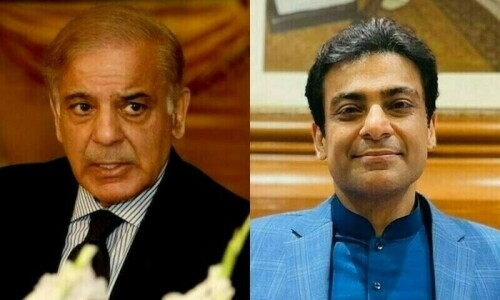IN ordinary times, the medical facilities of the armed forces are touted as second to none. In ordinary cases, a patient spending his own money can opt for treatment wherever they like and on whatever they want. But context is sometimes everything. The medical board constituted by the special court convened to try Pervez Musharraf has walked a medical and legal tightrope in presenting Mr Musharraf’s own opinion on where he should be treated — abroad — without explicitly stating whether the former army chief’s apprehensions about inadequate cardiac facilities inside Pakistan are reasonable or not. While the team of army doctors can be — and already have been — accused of letting the urge to protect one of their own get in the way of giving a forthright professional judgement, in truth, the responsibility for this growing fiasco rests squarely on the shoulders of Mr Musharraf.
What has become clear is that no trick is below the former army chief if it means delaying the start of his treason trial until some exit can be found. In turning to hospitalisation and emergency medical procedures, Mr Musharraf is certainly not alone. Politicians have also gone down that road in the past. But politicians have presented themselves before courts before — something Mr Musharraf is loath to do in this instance. Perhaps it is the stakes and the reasonably open-and-shut nature of the case; for the former president did not baulk at submitting himself to the judicial process when it came to cases involving the Benazir Bhutto assassination and the assault on Lal Masjid. Still, the contrast is almost impossible to ignore: politicians submitting themselves to even unfair and skewed legal processes over the years and here, a former army chief, embarrassing himself and everyone associated with a trial that the state has tried to keep scrupulously fair and transparent so far.
If embarrassment and humiliation are not above Mr Musharraf in a desperate bid to avoid a conviction and sentencing, perhaps his advisers should try and appeal to his sense of history and country. Surely, in focusing solely on Mr Musharraf and just on the events of November 2007, the state has erred. But even more surely, the former army chief violated the Constitution and betrayed his oath to institution and country. The legal process in this case is not merely about punishment and deterrence: it is about sending a signal about the kind of polity Pakistan wants to be, ie democratic, constitutional and led by civilians. That goal is higher than the fate of an individual who put his own ambitions and personal intentions above the system when he had the power to make that choice. Now, with that power gone, he should be ready to accept the illegitimacy of his actions.










































